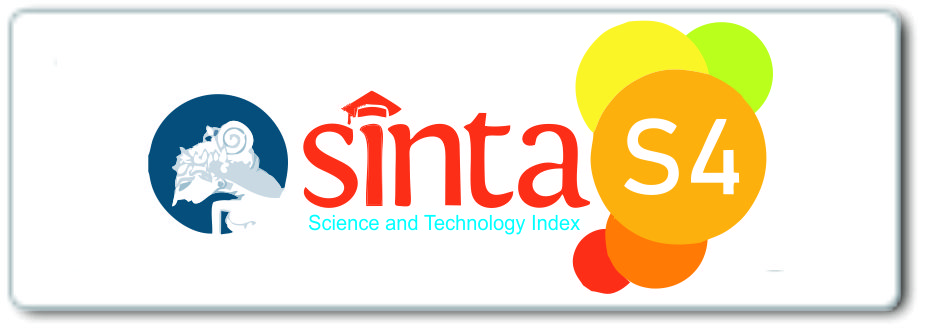Pengaruh Terpaan Tayangan Religi di Televisi Terhadap Sikap dan Perilaku Taqwa Pemirsa
DOI:
https://doi.org/10.29240/jdk.v2i1.274Keywords:
television, religious show program, attitude and behavior of TaqwaAbstract
This research entitled Influence of Impression on Religious Display on Television (Trans TV) on attitude and behavior of Taqwa Pemirsa (Student of Attahiriah Islamic University), which aims to 1) to know about exposure of religious event in Trans TV to viewers, ie Attahiriah University students, 2) Attitudes and behaviors of the audience, and 3) knowing whether the religious event's exposure to the audiences affected their attitude and piety behaviors. Research using correlation method using sampling technique, purposive sampling. Which with the formula Yamane obtained 98 respondents from the University Attahiriyah. Data collection tools used are questionnaires, observation and literature study. This research uses S-O-R model (stimulus-organism-response) and AIDDA (Attention, Interest, Desire, Decision, Action). Model S-O-R to see the effect of stimuli in the form of religious impressions to the audience (organisms) in which the response is the attitude and behavior of taqwa. While the AIDDA Model to see whether the attention of the attention will generate interest, then desire, then influence the decision and action as conveyed in the message in the show, such as attitude and Taqwa behavior. Research shows the relationship between variables X and variable Y is a high correlation between religious impressions Impression on attitudes and behavior of university students attitudes taqwa. After calculation using correlation Pearson's correlation formula (product moment) obtained correlation coefficient value of 0.79. So that the influence of exposure to religious impressions is important to create or foster attitudes and behavior of the audience, especially students attahiriyah.Downloads
References
Ali, Mohammad, Dan Mohammad Asori. Psikologi Remaja: Perkembangan Peserta Didi. (Jakarta: PT Bumi Aksara, 2014).
Ali, Mohammad Daud. Pendidikan Agama Islam, (Jakarta: PT. Raja Grafindo Persada, 2002).
Hidayat, Dede Rachmat. Teori dan Aplikasi Psikologi Kepribadian dalam
Konseling, (Bogor:Ghalia Indonesia, 2011) .
Ismail, A. Ilyas. Pilar-Pilar Taqwa, (Jakarta: P.T. Raja Grafindo Persada, 2009).
Kasali, Rhenald. Manajemen Public Relations: Konsep dan Aplikasinya di Indonesia, (Jakarta: Pustaka Utama Grafiti, 2006).
Kriyantono, Rachmat.Teknik Praktis Riset Komunikasi. (Jakarta: Kencana Prenada MediaGroup, 2006).
Neuman, W. Lawrance. Metodologi Penelitian Sosial: Pendekatan Kualitatif dan Kuantitatif, (Jakarta: PT. Indeks, 2013). Edisi ke-7
Nimmo, Dan. Komunikasi Politik: Khalayak dan Efek. (Bandung: Remaja Rosdakarya, 2006).
Nurudin. Pengantar Komunikasi Massa, (Jakarta: Rajawali Press, 2011).
Sanapiah, Faisal. Format-Format Penelitian Sosial. (Jakarta: PR Raja Grafindo, 2005).
Sarwono, Sarlito W. Pengantar Umum Psikologi. (Jakarta: PT. Bulan Bintang, 2003)
Set, Sony. Menjadi Perancang Program Televisi Profesional, (Yogyakarta: Andi Publisher, 2009).
Sobur, Alex. Ensiklopedia Komunikasi: P-Z, (Bandung: Remaja Rosdakarya, 2014).
______________. Psikologi Umum dalam Lintasan Sejarah. (CV. Pustaka Setia, 2013).
Subandi. Psikologi Agama dan Kesehatan Menta,. (Yogyakarta: Pustaka Pelajar, 2013)
Vardiansyah, Dani. Filsafat Ilmu Komunikasi: Suatu Pengantar, (Jakarta: PT. Indeks, 2005)
Downloads
Published
Issue
Section
License
Authors who publish with Jurnal Dakwah dan Komunikasi agree to the following terms:- Authors retain copyright and grant the journal right of first publication with the work simultaneously licensed under a Creative Commons Attribution-NonCommercial-ShareAlike 4.0 International License (CC BY-NC-SA 4.0) that allows others to share the work with an acknowledgment of the work's authorship and initial publication in this journal.
- Authors are able to enter into separate, additional contractual arrangements for the non-exclusive distribution of the journal's published version of the work (e.g., post it to an institutional repository or publish it in a book), with an acknowledgment of its initial publication in this journal.
- Authors are permitted and encouraged to post their work online (e.g., in institutional repositories or on their website) prior to and during the submission process, as it can lead to productive exchanges, as well as earlier and greater citation of published work (See The Effect of Open Access).


